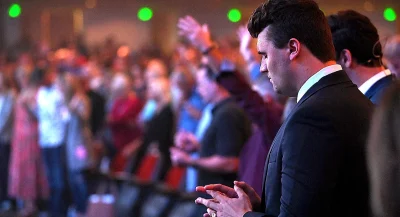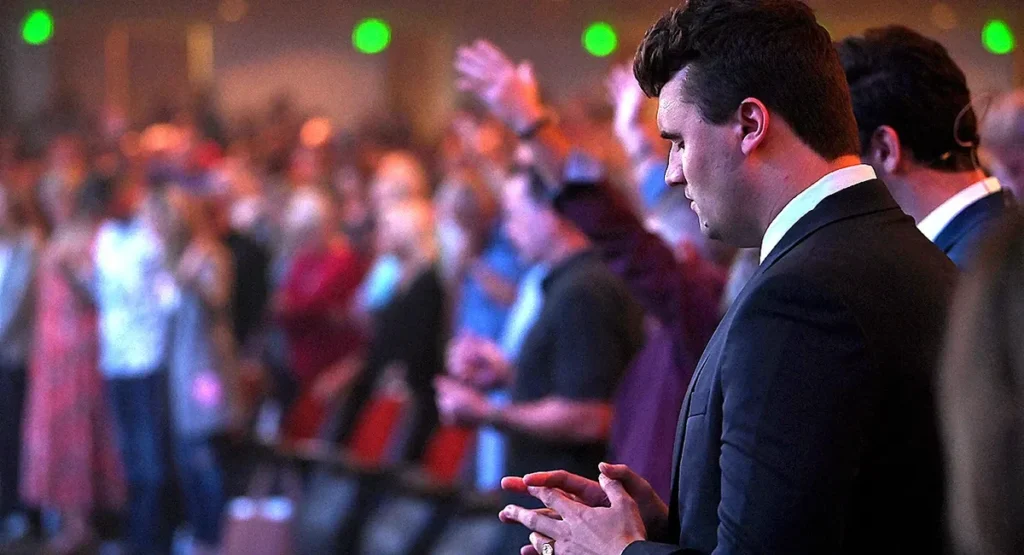
The unexpected reactions to Charlie Kirk’s brutal murder from various political perspectives stem from a flawed worldview.
Some on the right argue that Kirk was merely a political figure, but that’s a misleading claim.
He talked politics through the lens of his Christian faith. His beliefs shaped his messages, and those messages resonated because they were tied to his faith. Kirk wasn’t afraid to speak biblical truths; he let the gospel guide him, which is a big reason for his death.
Nobody killed Charlie Kirk over issues like immigration or tax policies.
He was targeted because he stood firm in the spiritual battles many others, including some pastors, avoided in favor of false ideals of unity and success.
Kirk was an outspoken Christian defender who expressed biblical truths, regardless of their popularity. He understood that his views might not be well-received, but they were grounded in scripture, and he consistently shared the gospel with others.
His death should be viewed not as a political assassination, but rather as a strike against religion.
The disregard from Christians towards fellow believers who apply shared beliefs to public policy can be just as distasteful as the complete rejection of Christ by atheists.
It’s worth revisiting Jesus’s teachings about humility and truth-seeking, especially for those involved in political missions.
Many Americans opt for comfort instead of confronting difficult issues. Yet, followers are called to engage deeply in thought. Our shared apathy contributes to the moral uncertainty of today.
Among the far left, there was a shocking misappropriation of celebration.
What leads someone to defend murder? Two words: Critical theory.
This theory has mistakenly suggested that there are no moral absolutes or objective truths, framing justice solely through identity. This belief system has ignited tensions in universities and beyond since October 7th.
There’s a lack of moral reasoning in the cultural Marxist dichotomy of oppressors versus the oppressed.
Many everyday Americans were horrified by the response to such an immoral act, while those with a secular, progressive view on identity politics seemed to find satisfaction in it.
For proponents of this worldview, morality can’t be assessed without understanding the actors’ identities and the implications of their actions.
Everything—even the murderers and the oppressed—can be seen as moral and, shockingly, deserving of celebration. This explains the public backing of both Hamas’s atrocities and Kirk’s murder.
This ideological clash is why Charlie Kirk engaged deeply on college campuses, the epicenter of secular indoctrination and identity politics.
The number of university professors and educators who are celebrating his death due to his commitment to cultural Marxism should send alarm bells ringing for even the most unsuspecting Americans.
The allure of comfort, however, is inherently selfish. To reject hatred, one must love others enough to make sacrifices.
Christians are called to engage with the world’s questions and provide answers rooted in truth across all spheres.
That’s precisely what Charlie Kirk was trying to achieve before his tragic death.







